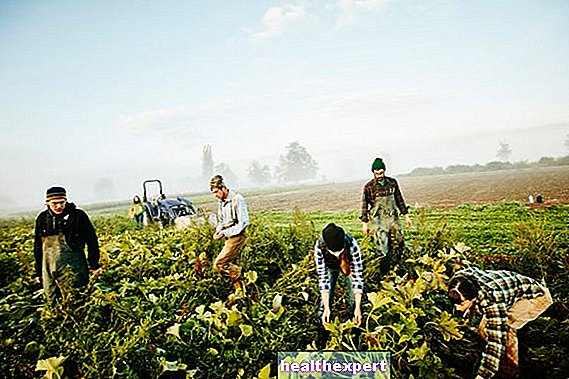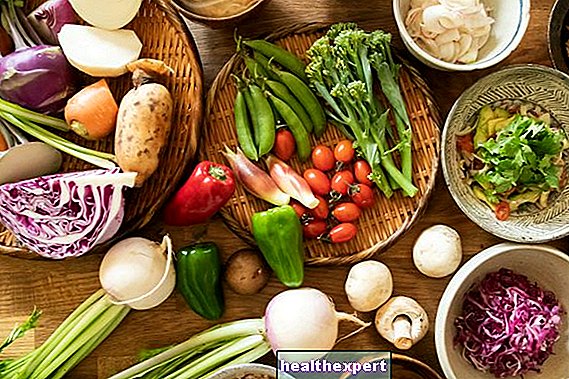Sustainable nutrition: how it can help protect the environment
Safeguarding the planet is a theme that is increasingly at the center of the political and social debate. Respecting the environment and preserving it for future generations also passes through the choice of having a sustainable diet. Let's find out together what it means, concretely, to follow the principles of food sustainability, starting with the choice of the foods we put on our plates. By the way, do you know which are the healthiest ones? It is explained in this video.
Our eating habits play a fundamental role in reducing environmental impact and fighting climate change. Consuming a certain food rather than another can help limit polluting emissions and support the local economy, triggering a virtuous circle that aims to decrease more and more global warming and the consumption of land, water and energy.
Having a "sustainable diet" means preferring foods grown in an ethical way and with a low environmental impact, giving preference to organic farming that limits the use of pesticides. A diet based on local foods, perhaps at km 0, mainly vegetarian (therefore rich in fruit and vegetables) and which seeks to reduce food waste as much as possible.
The issue of respect for the planet applied to the need to spread a sustainable and healthy diet globally is the basis of the EAT-Lancet Commission project; In fact, in 2019, the most expert scientists from all over the world came together with the aim of elaborating a document to be used as a model for the diet of the future. With the support of the United Nations and the countries participating in the climate agreements of Paris, scholars have drawn up an action plan which aims to reduce greenhouse gas emissions and the consumption of water and soil used for intensive agriculture.
See also




How to eat sustainably
The FAO has drawn up a list with the principles to be implemented for a "diet that is as sustainable as possible. The good news is that following these rules is easy and is also good for our health. Here are the behaviors to adopt to eat while respecting the environment" .
Give preference to plant foods at km 0
By now it is well known, the breeding of livestock for food consumption is one of the main causes of pollution on the planet. Consuming less protein of animal origin in favor of fruit and vegetables is good for the environment and also for our health. The model of the Mediterranean diet always remains the best: it is a "diet based mainly on vegetable products, cereals and legumes, with only an occasional consumption of meat. From a nutritional point of view, the Mediterranean diet is the best because it provides a low consumption of animal proteins.
Giving preference to seasonal fruit and vegetables, even better if grown in one's country of origin, is one of the most important principles of sustainable nutrition; the pollution deriving from transport has a great weight in terms of sustainability, therefore, if possible, we give priority to foods that do not need to be transported from one end of the planet to another.

Fighting food waste
In its decalogue dedicated to the theme of food sustainability, the association for the protection of the environment Greenpeace emphasizes the reduction of food waste. In Italy every year there are many tons of food that are thrown away without having been consumed Serious damage to the planet that can easily be avoided by paying a little more attention when shopping.
The WWF has estimated that in our country alone, families throw away about 8.1 billion euros in food every year: an enormous figure that must be absolutely reduced.
Limit plastic food packaging
The road to food sustainability also passes through small things. The European Commission has established that by 2030 all plastic packaging that wraps food will have to be replaced with recyclable packaging. Europe's goal is to reduce plastic consumption and limit the microplastics that are released into the environment in favor of biodegradable alternatives.

Consume fewer foods of animal origin
Meat and foods of animal origin have a great impact on climate pollution. Unlike plant foods, in fact, the production of greenhouse gases is very high to produce animal proteins. For 1 kg of beef, for example, 60 kg of gas are emitted, compared to just 1 kg of peas. Beef is the most problematic because these animals also consume large amounts of water.
Unfortunately, water exploitation is another great front on which the battle for sustainability is being fought.
In this sense, chicken meat is more sustainable than red meat because much less water is needed to produce it, as is the case with vegetables. These differences derive from the use of water for feed destined for livestock: even one third of the water for livestock is used to water the cattle.